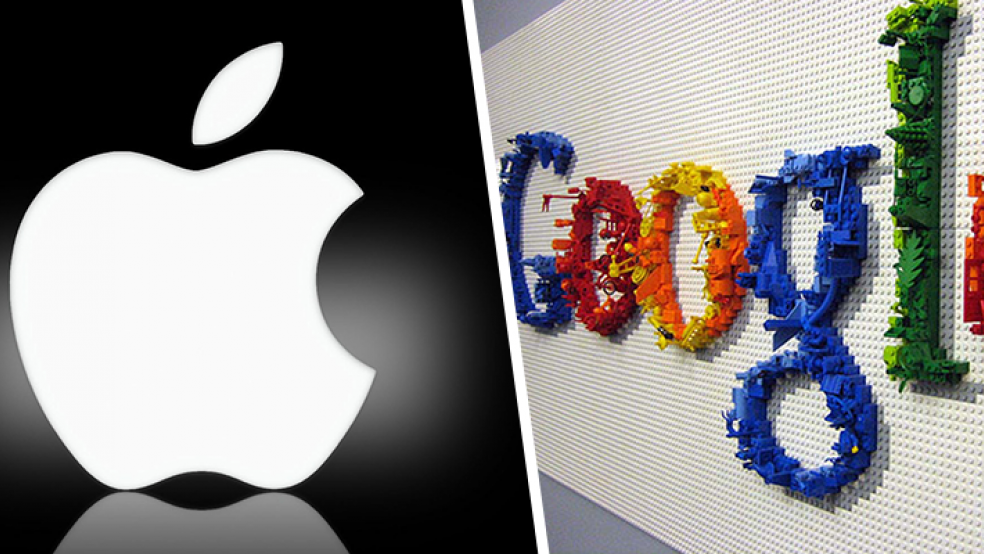“If you hire a single one of these people, that means war.”
Apple CEO Steve Jobs sent that warning to Google co-founder Sergey Brin in an email back in 2005, when Jobs found out that Brin was trying to recruit employees from Apple's browser team. Jobs and Brin eventually came to an informal arrangement not to poach employees from each other, which led to similar arrangements between Apple, Google and other big tech companies such as Intel and Adobe.
Those arrangements ultimately led to a class-action lawsuit that was just recently settled out of court — a suit the tech industry was smart in getting over and done with as soon as possible. In a related case, eBay on Thursday settled state and federal lawsuits alleging similar anti-competitive agreements.
Those cases may now be settled, but the implications for Silicon Valley aren’t completely clear yet. It’s also not clear why tech’s giants would have embarked on such a course of action in the first place.
The plaintiffs in the case were 64,613 software engineers who charged that Apple, Google, Adobe and Intel conspired to "fix and suppress the compensation of their employees" by entering into "express agreements to eliminate competition among them for skilled labor." The case grew out of an earlier investigation by the Department of Justice, which resulted in an anti-trust verdict against Apple, Google, Intel and other tech companies but didn't preclude further legal action against them.
As in other industries, job hopping is the way most employees in the tech industry increase their salaries. A techie working for any of the companies involved isn’t exactly making subsistence wages, but waiting around for a yearly raise — and even a sweet bonus — isn't necessarily going to get them into that luxe house in Berkeley these days.
If these big four tech companies did indeed have behind-the-scenes arrangements that limited software developers from being actively recruited by other companies — which the settlement implies — there's a strong case to be made the employees’ compensation was in fact being suppressed.
Star Bidding Wars?
The suit placed Steve Jobs at the head of the alleged conspiracy to suppress compensation, and traced the origin of Silicon Valley's informal, no-poaching arrangements back to a similar arrangement Jobs made with Lucasfilm's George Lucas when the “Star Wars” creator sold Jobs the portion of his business that would eventually become Pixar. According to court papers, Lucas told Jobs, "We cannot get into a bidding war with other companies, because we don’t have the margins for that sort of thing.” Jobs reportedly used his dealings with Lucas as a model for the tech industry.
Yet months before Jobs died in 2011, Apple had well over $76 billion in cash reserves. And as of March 31 of this year, Google had almost $60 billion in cash or cash equivalents. All of which suggests that tech company margins are doing fine, and have been for quite a while.
With the American public's increasing wariness of high-tech's effect on their day-to-day lives, this legal action came at a bad time for Silicon Valley — a time when it needs all the good press it can get. The companies involved were indeed smart to settle out of court, to keep this case away from a jury and the even more damaging quotes that were likely to emerge. And the amount they reportedly settled for was a bargain.
Details haven't been released, but the settlement will reportedly see the companies pay $324 million, or as BusinessWeek described it, about 0.4 percent of their combined total revenues — in just the most recent quarter.
The plaintiffs were originally asking for $3 billion, which could have tripled if it had come to a jury trial and the decision went their way. The ultimate settlement isn't a lot of money in Silicon Valley, especially when you consider what that works out to per class-action plaintiff: maybe several thousand dollars.
Shouldn't it have been apparent, after so many instances of so many scandals that grow out of backroom deals, that any such collusion would almost surely come back to bite the participants — exactly what seems to have happened? And why try and suppress compensation among a group of employees who not only can't bankrupt you with their "outrageous" salary demands, but who also do the bread-and-butter work of developing your products?
BusinessWeek’s Paul Barrett and Brad Stone point out that the lure of Apple, Google and similar tech leaders is such that many engineers and marketers would work there for free. That may well be true, but practices like these, once they become public, are bound to diminish the appeal of those companies, at least a bit. And in Silicon Valley, hot new competitors are cropping up all the time. Angering 64,000 software engineers is a good start to poisoning the well of people you need to work the hardest for you.
Top Reads from The Fiscal Times:
- April’s Jobs Report Both Boom and Bust
- The 12 Best Restaurants in the World
- Special Report: The Real Story Behind Rising CEO Pay




